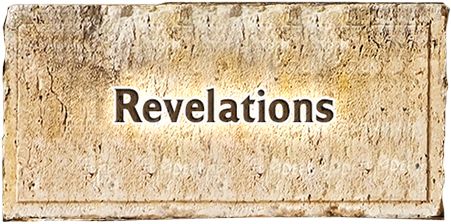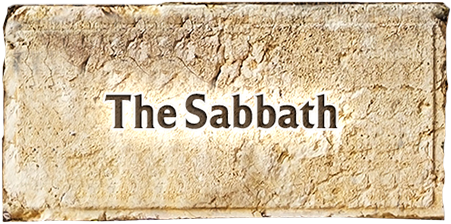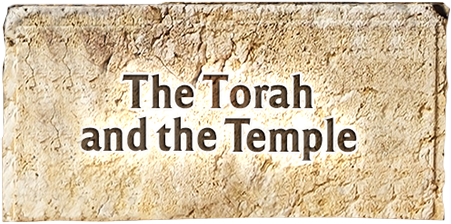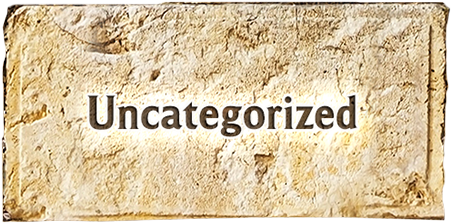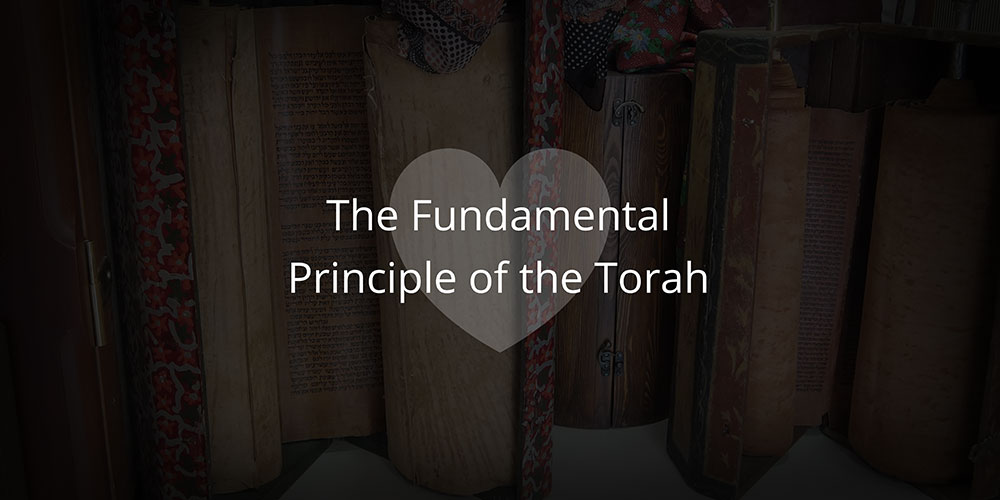The Fundamental Principle of the Torah
המדה העקרה של התורה
The Love that flows from G-d
is the basic principle of the Torah. אהבה שזורם מיי.
It is the spring from which all the commandments, precepts, testimonies, and judgments flow. It is the root of all the action of HaShem.
Love אהבה takes less energy than being on the defensive.
Many times we start our day being on the defensive, and therefore we fail to live, and enjoy
life to its fullest measure.
Righteousnessצדקה is right action in the context of love.
Right action in the context of the principle of love is the foundation of the law,
This principle is the artesian wellspring of the Torah from which the commandments, precepts, testimonies, and judgments originate and emanate.
The deep things of the Torah are mercy, and kindness, and justice.
| He has told you, O man, what is good, and what the Lord demands of you; but to do justice, to love loving-kindness, and to walk discreetly with your God. Micah 6:8
הִגִּיד לְךָ אָדָם מַה טּוֹב וּמָה יְהֹוָה דּוֹרֵשׁ מִמְּךָ כִּי אִם עֲשׂוֹת מִשְׁפָּט וְאַהֲבַת חֶסֶד וְהַצְנֵעַ לֶכֶת עִם אֱלֹהֶיךָ: |
|
Mercy חסד is another trademark of love.
Mercy is the principle of love.
You can’t have mercy without love.
It all blends together.
The priesthood, the Cohanim, and the sacrifices, all point to love.
The purpose is forgiveness and reuniting with G-d-HaShem.
This is the whole purpose of Leviticus-VaYikra ויקרא -the center book of the Torah.
Grace חןis another trademark of love.
The true principle of action in the Jewish context is love.
It is the depth and the true meaning of the Torah.
The correct interpretation and understanding of the Torah always springs from it.
The whole law can be simplified.
It is all about mercy, grace, justice, and compassion.
Love is the perfecting of the Torah.
Its complete, total, and consummate incarnation is in the Messiah.
The Law, the Torah, deals with how to treat other people.
The ten commandments-aseret dvarim עשרת דברים-set forth principles in this arena.
But their basis is love.
The root of the word Torah is teacher, or parent.
In it is G-d as our Father.
The first time HaShem appeared to Abram in the Land of Israel was in Shechem, when Abram was under the Alon Moreh-the oak of Moreh.
And Abram passed through the land unto the place of Shechem, unto the terebinth of Moreh. And the Canaanite was then in the land.
And the LORD appeared unto Abram, and said: ‘Unto thy seed will I give this land’; and he builded there an altar unto the LORD, who appeared unto him. Genesis 12:6-7
וַיַּעֲבֹר אַבְרָם בָּאָרֶץ עַד מְקוֹם שְׁכֶם עַד אֵלוֹן מוֹרֶה
וְהַכְּנַעֲנִי אָז בָּאָרֶץ
וַיֵּרָא יְהוָה אֶל אַבְרָם
וַיֹּאמֶר
לְזַרְעֲךָ אֶתֵּן אֶת-הָאָרֶץ הַזֹּאת
וַיִּבֶן שָׁם מִזְבֵּחַ לַיהוָה הַנִּרְאֶה אֵלָיו
Why did HaShem choose to first meet with Abram there, and not in another place?
This is because HaShem is our Father-Teacher, and in His love He is strong and unmovable.
It was here in the land, that HaShem first gave Abram the promise of the inheritance of the land of Israel.
This was given in love אהבה.
It was on Mt. Moriah, the place of the Father-Teacher, that HaShem told Abraham to sacrifice his only son Isaac, the son of the promise.
The commandment was given in love אהבה.
And it came to pass after these things, that God did prove Abraham, and said unto him: ‘Abraham’; and he said: ‘Here am I.’And He said: ‘Take now thy son, thine only son, whom thou lovest, even Isaac, and get thee into the land of Moriah; and offer him there for a burnt-offering upon one of the mountains which I will tell thee of.’ Genesis 22:2
וַיֹּאמֶר קַח נָא אֶת בִּנְךָ אֶת יְחִידְךָ אֲשֶׁר אָהַבְתָּ אֶת יִצְחָק
וְלֶךְ לְךָ אֶל אֶרֶץ הַמֹּרִיָּה
וְהַעֲלֵהוּ שָׁם לְעֹלָה עַל אַחַד הֶהָרִים אֲשֶׁר אֹמַר אֵלֶיךָ:
.
The commandment was given in love אהבה.
It was here, on Mt. Moriah, that the angel told David to sacrifice to stop the wrath of the plague, on the threshing floor of Ornan the Jebusite, after David had numbered Israel.
Then the angel of the LORD commanded Gad to say to David, that David should go up, and rear an altar unto the LORD in the threshing-floor of Ornan the Jebusite. I Chronicles 21:18
וּמַלְאַךְ יְהֹוָה אָמַר אֶל גָּד לֵאמֹר לְדָוִיד
כִּי יַעֲלֶה דָוִיד לְהָקִים מִזְבֵּחַ לַיהֹוָה
בְּגֹרֶן אָרְנָן הַיְבֻסִי
.And David built there an altar unto the LORD, and offered burnt-offerings and peace-offerings, and called upon the LORD; and He answered him from heaven by fire upon the altar of burnt-offering. . I Chronicles 21:26
וַיִּבֶן שָׁם דָּוִיד מִזְבֵּחַ לַיהֹוָה
וַיַּעַל עֹלוֹת וּשְׁלָמִים וַיִּקְרָא אֶל יְהֹוָה
וַיַּעֲנֵהוּ בָאֵשׁ מִן הַשָּׁמַיִם עַל מִזְבַּח הָעֹלָה:
This was given in love אהבה.
It was here, on Mt. Moriah, that the holy temple, was built, and sacrifices and praises were offered to HaShem. The glory of HaShem moved from Sinai to Jerusalem.
Then Solomon began to build the house of the LORD at Jerusalem in mount Moriah, where [the LORD] appeared unto David his father; for which provision had been made in the Place of David, in the threshingfloor of Ornan the Jebusite. II Chronicles 3:1
וַיָּחֶל שְׁלֹמֹה לִבְנוֹת אֶת בֵּית יְהֹוָה בִּירוּשָׁלִַם
בְּהַר הַמּוֹרִיָּה
אֲשֶׁר נִרְאָה לְדָוִיד אָבִיהוּ
אֲשֶׁר הֵכִין בִּמְקוֹם דָּוִיד
בְּגֹרֶן אָרְנָן הַיְבוּסִי:
The transfer was made in love אהבה.
It was here that the Messiah was sacrificed as a lamb, to bring atonement and cleansing from sin, to bring eternal life and the resurrection from the dead.
This sacrifice was made in love at the commandment of the Father.
The law was a schoolmaster to bring us to the Messiah.
The foundation of love in the Torah brings us to possess the perfection of love in the Messiah.
This is the Yom Shay Cooloh Shabbat. The Day that All Is Shabbat.
It was here that we were released to exercise love.
We were released to exercise the precepts of the Torah in the true context of love.
We were released from the religious context, which is doing the precepts of the Torah without the basis of love: the mere routine performance of the law only by tradition.
Now we understand.
Now it all ties together.
It all makes sense now.
It has nothing to do with “do’s” and “don’ts”.
It has to do with loving G-d HaShem.
It has to do with loving man.
It has to do with living life to its fullest.
It has to do with receiving the blessings of HaShem.
It has to do with inheriting the land. Deuteronomy 28:1-13
Chapter 28
| 1. And it will be if you obey the Lord, your God, to observe to fulfill all His commandments which I command you this day, the Lord, your God, will place you supreme above all the nations of the earth. |
א. וְהָיָה אִם שָׁמוֹעַ תִּשְׁמַע בְּקוֹל יְהֹוָה אֱלֹהֶיךָ לִשְׁמֹר לַעֲשׂוֹת אֶת כָּל מִצְוֹתָיו אֲשֶׁר אָנֹכִי מְצַוְּךָ הַיּוֹם וּנְתָנְךָ יְהֹוָה אֱלֹהֶיךָ עֶלְיוֹן עַל כָּל גּוֹיֵי הָאָרֶץ: |
|
| 2. And all these blessings will come upon you and cleave to you, if you obey the Lord, your God. |
ב. וּבָאוּ עָלֶיךָ כָּל הַבְּרָכוֹת הָאֵלֶּה וְהִשִּׂיגֻךָ כִּי תִשְׁמַע בְּקוֹל יְהֹוָה אֱלֹהֶיךָ: |
|
| 3. You shall be blessed in the city, and you shall be blessed in the field. |
ג. בָּרוּךְ אַתָּה בָּעִיר וּבָרוּךְ אַתָּה בַּשָּׂדֶה: |
|
| 4. Blessed will be the fruit of your womb, the fruit of your soil, the fruit of your livestock, the offspring of your cattle, and the flocks of your sheep. |
ד. בָּרוּךְ פְּרִי בִטְנְךָ וּפְרִי אַדְמָתְךָ וּפְרִי בְהֶמְתֶּךָ שְׁגַר אֲלָפֶיךָ וְעַשְׁתְּרוֹת צֹאנֶךָ: |
|
| the offspring of your cattle: Heb. שְׁגַר אֲלָפֶיךָ, the young which are born from your cattle, [that is,] which the animal sends forth (מְשַׁגֶּרֶת) from its womb. |
שגר אלפיך: ולדות בקרך שהבהמה משגרת ממעיה: |
|
| and the flocks of your sheep: Heb. וְעַשְׁתְּרוֹת צֹאנֶךָ [This expression is to be understood] as it is rendered by the Targum [Onkelos]: “וְעֶדְרֵי עָנָךְ, and the flocks of your sheep.” Our Rabbis, however, said: Why are [sheep] עַשְׁתְּרוֹת ? Because they enrich (מַעֲשִׁירוֹת) their owners (Chul. 84b) and maintain them, as עַשְׁתְּרוֹת, which are strong rocks. |
ועשתרות צאנך: כתרגומו. ורבותינו אמרו למה נקרא שמם עשתרות שמעשירות את בעליהן ומחזיקות אותם כעשתרות הללו שהן סלעים חזקים: |
|
| 5. Blessed will be your basket and your kneading bowl. |
ה. בָּרוּךְ טַנְאֲךָ וּמִשְׁאַרְתֶּךָ: |
|
| Blessed will be your basket: Your fruits. Another explanation of טַנְאֲךָ: liquids which you strain through baskets [used as strainers]. |
ברוך טנאך: פירותיך. דבר אחר טנאך דבר לח שאתה מסנן בסלים: |
|
| and your kneading bowl: Heb. וּמִשְׁאַרְתֶּךָ. Something dry, which remains (נִשְׁאָר) in the receptacle and does not flow through. [This interpretation follows the latter interpretation in the above Rashi. According to the former interpretation, this means simply “your kneading bowl.” |
ומשארתך: דבר יבש שנשאר בכלי ואינו זב: |
|
| 6. You shall be blessed when you come, and you shall be blessed when you depart. |
ו. בָּרוּךְ אַתָּה בְּבֹאֶךָ וּבָרוּךְ אַתָּה בְּצֵאתֶךָ: |
|
| Blessed will you be when you come, and blessed will you be when you depart: May your departure from the world be as free of sin as was your entry into the world. — [B.M. 107a] |
ברוך אתה בבאך וברוך אתה בצאתך: שתהא יציאתך מן העולם בלא חטא כביאתך לעולם: |
|
| 7. The Lord will cause your enemies who rise up against you, to be beaten before you; they will come out against you in one direction, but they will flee from you in seven directions. |
ז. יִתֵּן יְהֹוָה אֶת אֹיְבֶיךָ הַקָּמִים עָלֶיךָ נִגָּפִים לְפָנֶיךָ בְּדֶרֶךְ אֶחָד יֵצְאוּ אֵלֶיךָ וּבְשִׁבְעָה דְרָכִים יָנוּסוּ לְפָנֶיךָ: |
|
| but they will flee from you in seven directions: Such is the way of those who flee out of fear: they scatter in all directions. |
ובשבעה דרכים ינוסו לפניך: כן דרך הנבהלים לברוח מתפזרין לכל צד: |
|
| 8. The Lord will order the blessing to be with you in your granaries, and in every one of your endeavors, and He will bless you in the land which the Lord, your God, is giving you. |
ח. יְצַו יְהֹוָה אִתְּךָ אֶת הַבְּרָכָה בַּאֲסָמֶיךָ וּבְכֹל מִשְׁלַח יָדֶךָ וּבֵרַכְךָ בָּאָרֶץ אֲשֶׁר יְהֹוָה אֱלֹהֶיךָ נֹתֵן לָךְ: |
|
| 9. The Lord will establish you as His holy people as He swore to you, if you observe the commandments of the Lord, your God, and walk in His ways. |
ט. יְקִימְךָ יְהֹוָה לוֹ לְעַם קָדוֹשׁ כַּאֲשֶׁר נִשְׁבַּע לָךְ כִּי תִשְׁמֹר אֶת מִצְוֹת יְהֹוָה אֱלֹהֶיךָ וְהָלַכְתָּ בִּדְרָכָיו: |
|
| 10. Then all the peoples of the earth will see that the name of the Lord is called upon you, and they will fear you. |
י. וְרָאוּ כָּל עַמֵּי הָאָרֶץ כִּי שֵׁם יְהֹוָה נִקְרָא עָלֶיךָ וְיָרְאוּ מִמֶּךָּ: |
|
| 11. And the Lord will grant you good surplus in the fruit of your womb, in the fruit of your livestock, and in the fruit of your soil, on the land which the Lord swore to your forefathers, to give you. |
יא. וְהוֹתִרְךָ יְהֹוָה לְטוֹבָה בִּפְרִי בִטְנְךָ וּבִפְרִי בְהֶמְתְּךָ וּבִפְרִי אַדְמָתֶךָ עַל הָאֲדָמָה אֲשֶׁר נִשְׁבַּע יְהֹוָה לַאֲבֹתֶיךָ לָתֶת לָךְ: |
|
| 12. The Lord will open up for you His good treasury, the heaven, to give your land its rain in its [right] time, and to bless everything you do. And you will lend many nations, but you will not [need to] borrow. |
יב. יִפְתַּח יְהֹוָה | לְךָ אֶת אוֹצָרוֹ הַטּוֹב אֶת הַשָּׁמַיִם לָתֵת מְטַר אַרְצְךָ בְּעִתּוֹ וּלְבָרֵךְ אֵת כָּל מַעֲשֵׂה יָדֶךָ וְהִלְוִיתָ גּוֹיִם רַבִּים וְאַתָּה לֹא תִלְוֶה: |
|
| 13. And the Lord will set you at the head, and not at the tail, and you will be only at the top, and you will not be at the bottom, if you obey the commandments of the Lord, your God, which I am commanding you this day, to observe to fulfill [them]. |
יג. וּנְתָנְךָ יְהֹוָה לְרֹאשׁ וְלֹא לְזָנָב וְהָיִיתָ רַק לְמַעְלָה וְלֹא תִהְיֶה לְמָטָּה כִּי תִשְׁמַע אֶל מִצְוֹת | יְהֹוָה אֱלֹהֶיךָ אֲשֶׁר אָנֹכִי מְצַוְּךָ הַיּוֹם לִשְׁמֹר וְלַעֲשׂוֹת: |

